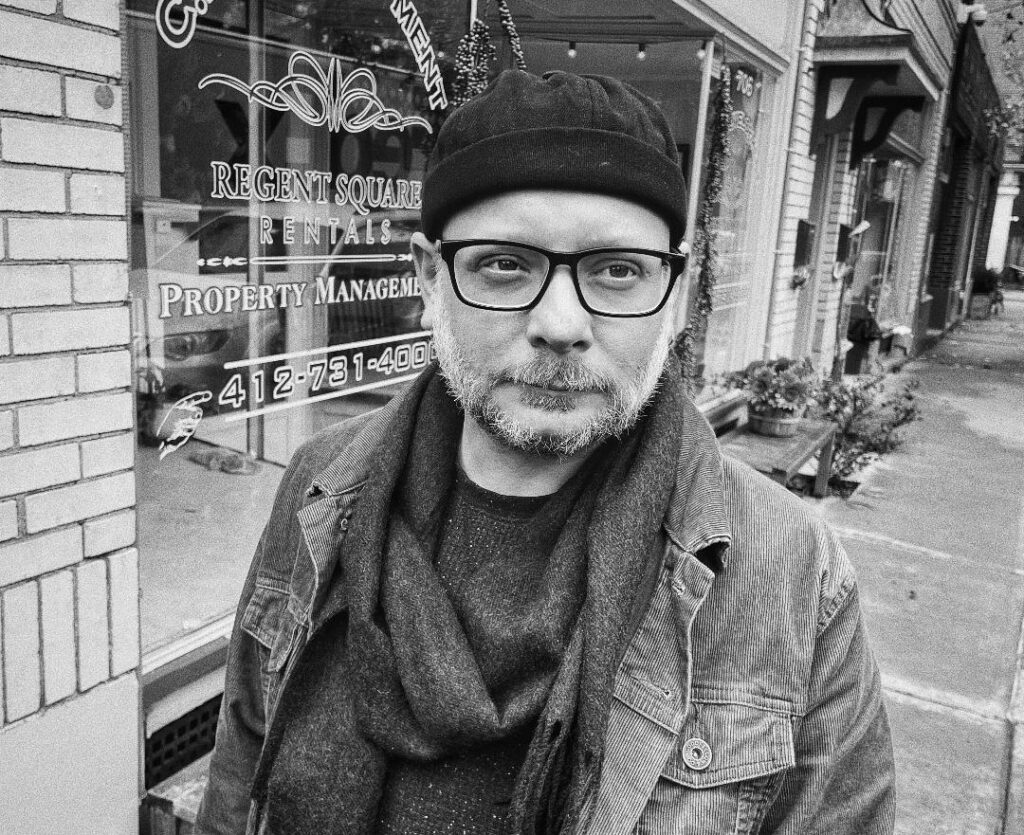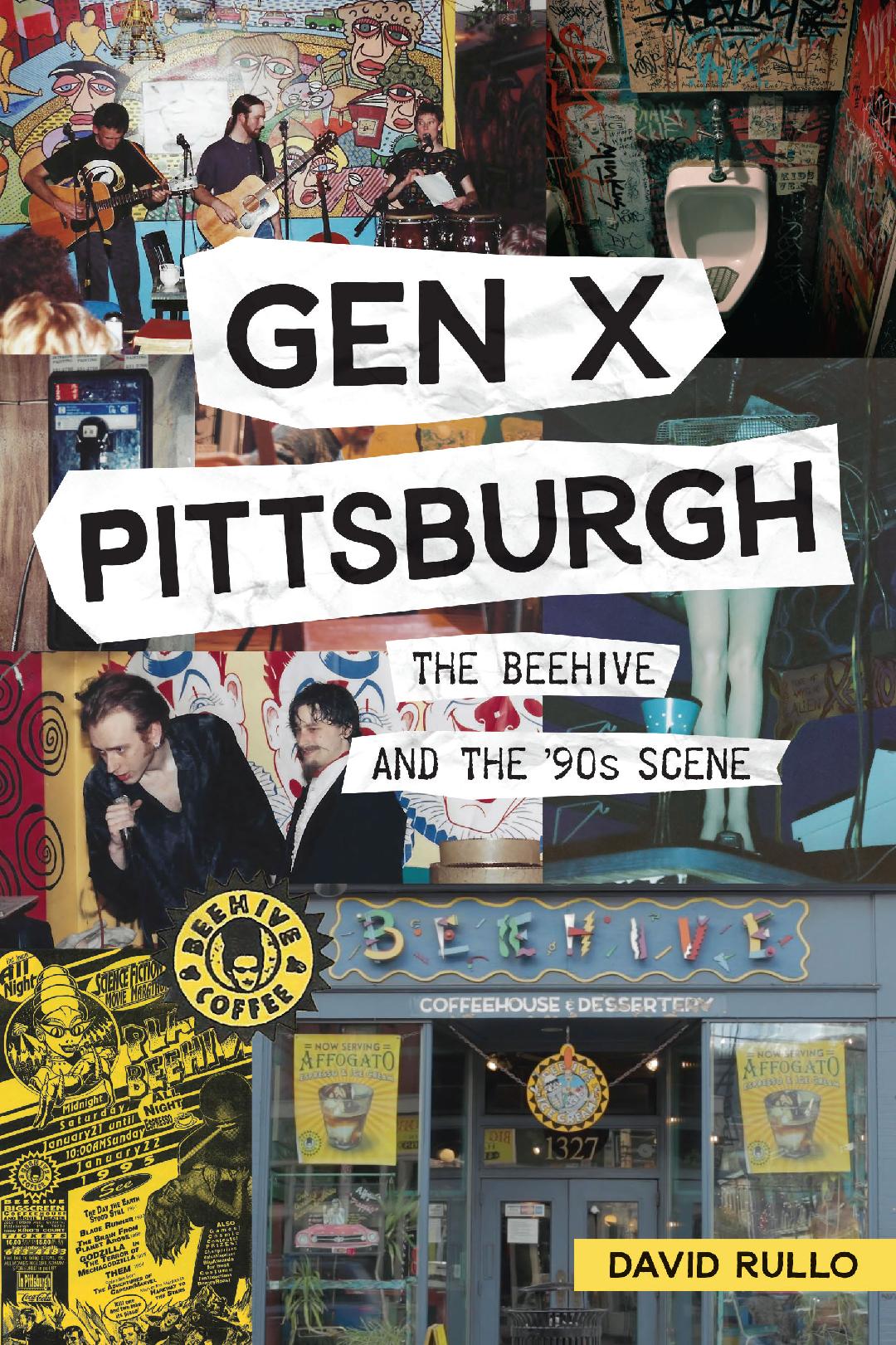When David Rullo attended then Point Park College in the early 1990s, the only place near campus that seemed to have any life to him and his friends was the Rax roast beef fast-food restaurant. So they set off to find someplace beyond postindustrial Downtown.
They landed at the Beehive, Pittsburgh’s first coffeehouse, on the South Side, where people interested in music and books hung out.
It became Rullo’s regular place, and he and his friends headed there up to five times a week, spending a couple of bucks on a cup of coffee and staying there all day. “It was our regular place,” he recalled. “Originally it was open 24 hours, so it was easy to be there. Nowhere was anything else open for 24 hours other than Eat’n Park. And that’s not the place when you are 20 or 21 years old that you want to be hanging out at anyway.”
Those visits and a longtime desire to become a writer led him to write “Gen X Pittsburgh: The Beehive and the ’90s Scene,” which will be celebrated starting at 7 p.m. Wednesday with a party at the Tiki Lounge on the South Side. The official book release happened Monday.
A news release promoting the book and party explains it takes a deep dive into the history of the Beehive, which opened in 1991 and closed in 2019, and the customers, artists, musicians, students and community denizens that made the café such cultural touchstones.
Rullo talked to 70 people, including owners Scott Kramer and Steve Zumoff, for about 100 interviews to write the book over a year and a half. He’s a senior writer at the Pittsburgh Jewish Chronicle and has won many awards, according to the book’s news release. He worked in production and sales for KDKA and KQV radio following his journalism studies at Point Park. The 51-year-old’s work has appeared in national and international newspapers, magazines and literary journals. The native Pittsburgher has spent most of his life exploring and contributing to the city’s art and literary scene; Rullo and his wife, Kim, and son live in the South Hills.
Rullo’s work has been exhibited and heard in Pittsburgh’s Cultural District, and his bands Digital Buddha, Architects of the Atmosphere and Centrale Electrique have explored the boundaries between electronic music, spoken word, performance art and experimental music, according to the book’s news release. His music can be heard in the score for the art film “The Pittsburgh Nude Project.” Rullo’s collection of poetry, “Tired Scenes From a City Window,” was published in 2015.
All his work and experiences led him to be well versed on Pittsburgh history, so Rullo focused on the people who owned, worked and enjoyed the Beehive in his research for the book. The Sen. John Heinz History Center has Beehive material and mementos in one of its archives, as well as a record of the people connected to the Beehive who were interviewed by WESA radio’s Bill O’Driscoll and musician Phat Man Dee. They gave him a hard drive of those interviews, which was a help, although he had already tracked down many of the key people via the two owners or social media.
Rullo believes the Beehive really became the cultural touchstone, at least for a small period of time, among a certain group of 18- to 25-, 26-year-olds. “There were no cellphones, no internet [then],” he explained. “That is where you met people who were similar [to you.] That is where people from out of town who were similar went, too.”
Thus, the Beehive became part of what was the next generation of the South Side. “It became more than a community of the shops and the stores that were there. It became a landmark of the South Side, and it became an attraction,” Rullo explained.
When the owners announced its closing in September 2018, so many people came just for one more experience that the owner postponed the closing until January 2019, he said. Rullo went back himself about six times, and that is when he decided to write the book.

Rullo’s first idea was to write a fiction book, harking back to his sixth grade self who bought the 1984 edition of George Orwell’s “1984” and fell in love with it and writing. His favorite fiction writer was Ernest Hemingway, who had also started his career as a journalist. But then he asked himself why.
“I thought this is a story,” he explained. “Everyone [involved] is a character. The place had a narrative.” So he chose a nonfiction approach and worked with Arcadia Publishing and History Press to make it happen. His boundaries from the company? Don’t go longer than 50,000 words. He didn’t and wrote 47,000.
The writing proved to be the easy part. Getting all those interviews completed and keeping the book’s narrative scope proved more difficult.
Rullo balanced it all with his work for the Pittsburgh Jewish Chronicle, interviewing his sources mainly in the evenings and on weekends. He kept track on what he gathered — all the information and themes — on three whiteboards in his home, a more complicated process than writing a 1,000-word story for his newspaper.
His editor, Toby Tabachnick, helped with the editing process, mainly for structure and grammatical issues, and the publishing company’s editors reviewed it as well. It is now available via Amazon, Barnes & Noble and local bookstores.
Now that this book is done, he is toying with two more ideas, a history of the Art Institute of Pittsburgh or the Brewhouse space on the South Side.
One thing he is sure about is that what he and so many others who frequented the Beehive found vanished well before it closed. And that was another factor that drove him to finish this book.
“The loss happened probably 15 years ago as people became more used to technology and less social places like the Beehive began not to matter as much,” Rullo said. “So, when people go [to a coffeehouse] now, they sit with a screen in front of them and their headphones on, and that takes away from places like the Beehive. It takes away the community. They only socialize with themselves and the people they are with. The loss is deep, but it didn’t start with the loss of the Beehive.”
Pittsburgh musicians Liz Berlin and Bingo Quixote, as well as Circus Apocalypse alums David Gruen and Joyce Bobincheck will perform at the launch party at 7 p.m. at Tiki Lounge, 2003 E. Carson Street, Pittsburgh 15203. Rullo, Kramer and Zumoff will all speak and sign books. There will be opportunities for photos and more, as well as the possibility of a few surprises, the book’s news release promises.
READ AN EXCERPT FROM “GEN X PITTSBURGH: THE BEEHIVE AND THE ’90s SCENE” at in Belt Magazine: https://beltmag.com/back-to-the-beehive.
VIEW THE TRAILER: https://www.goodreads.com/videos/204496-gen-x-pittsburgh-the-beehive-and-the-90s-scene-trailer.
Helen is a copy editor at the Pittsburgh Post-Gazette, but she's currently on strike. Contact her at hfallon@unionprogress.com.



